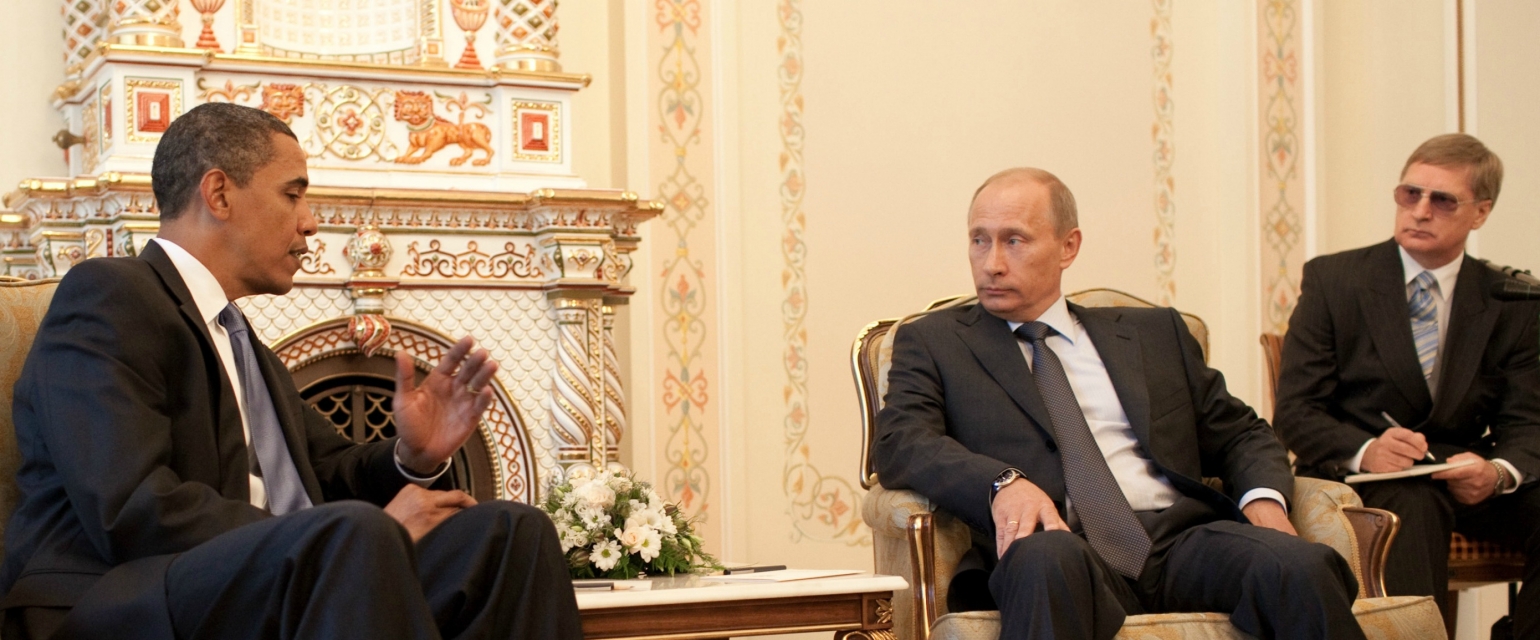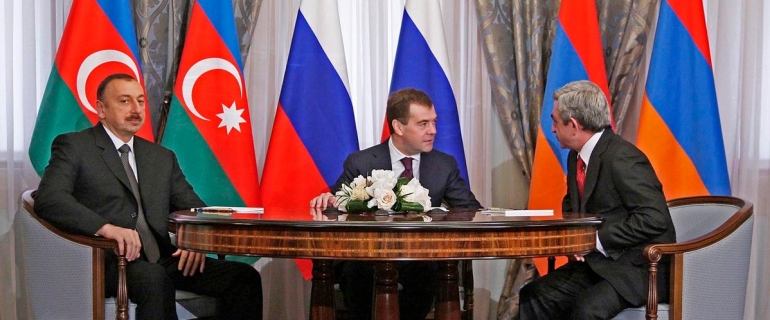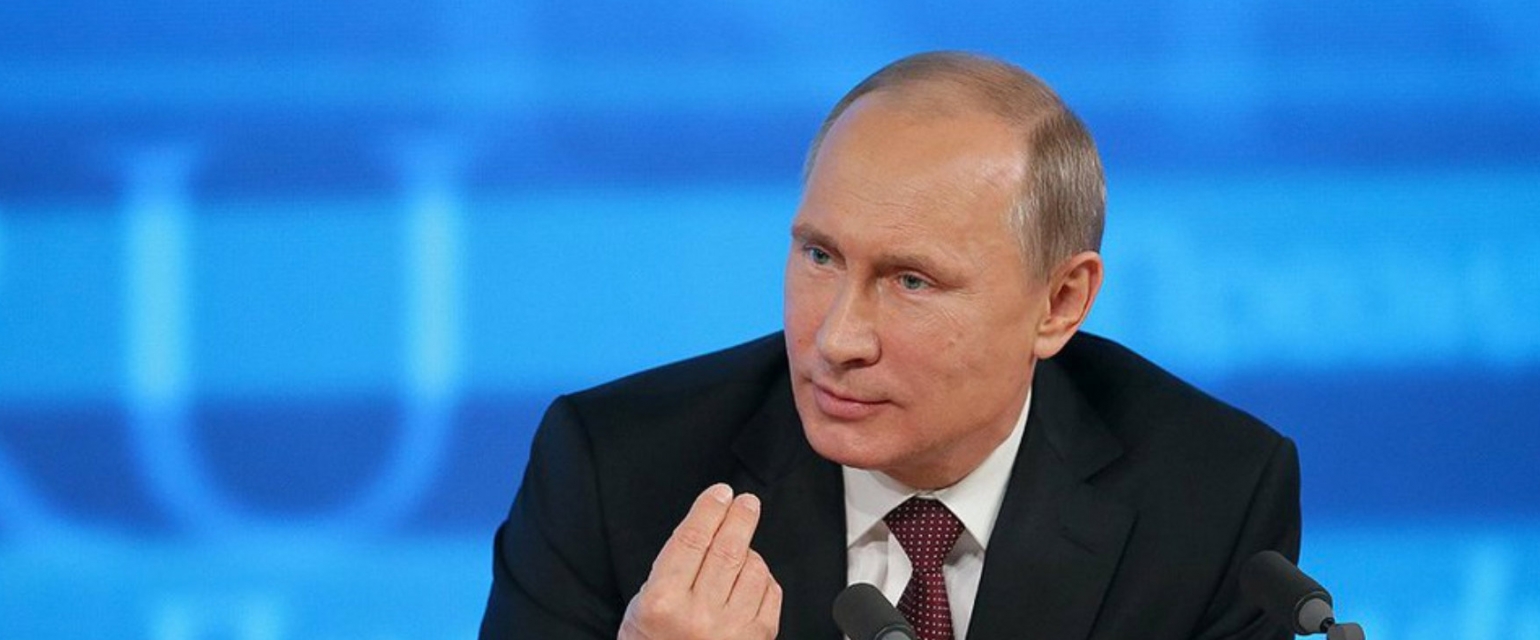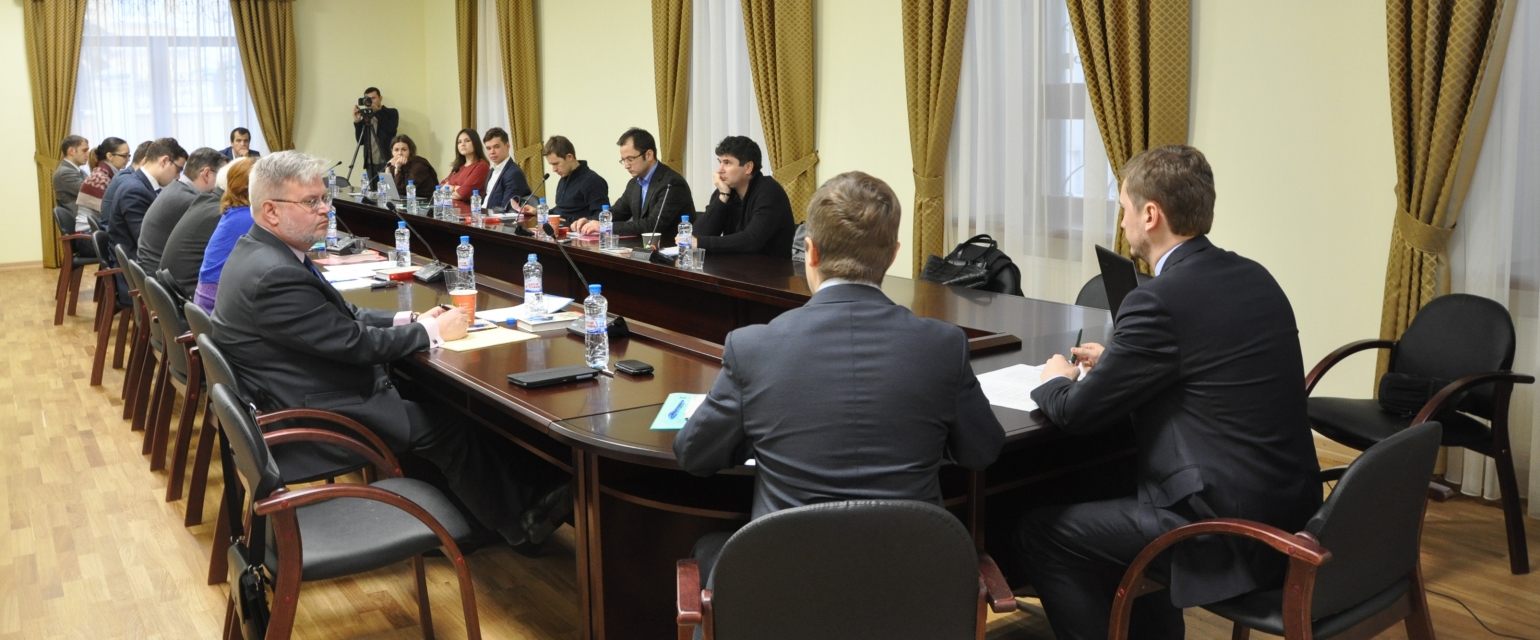

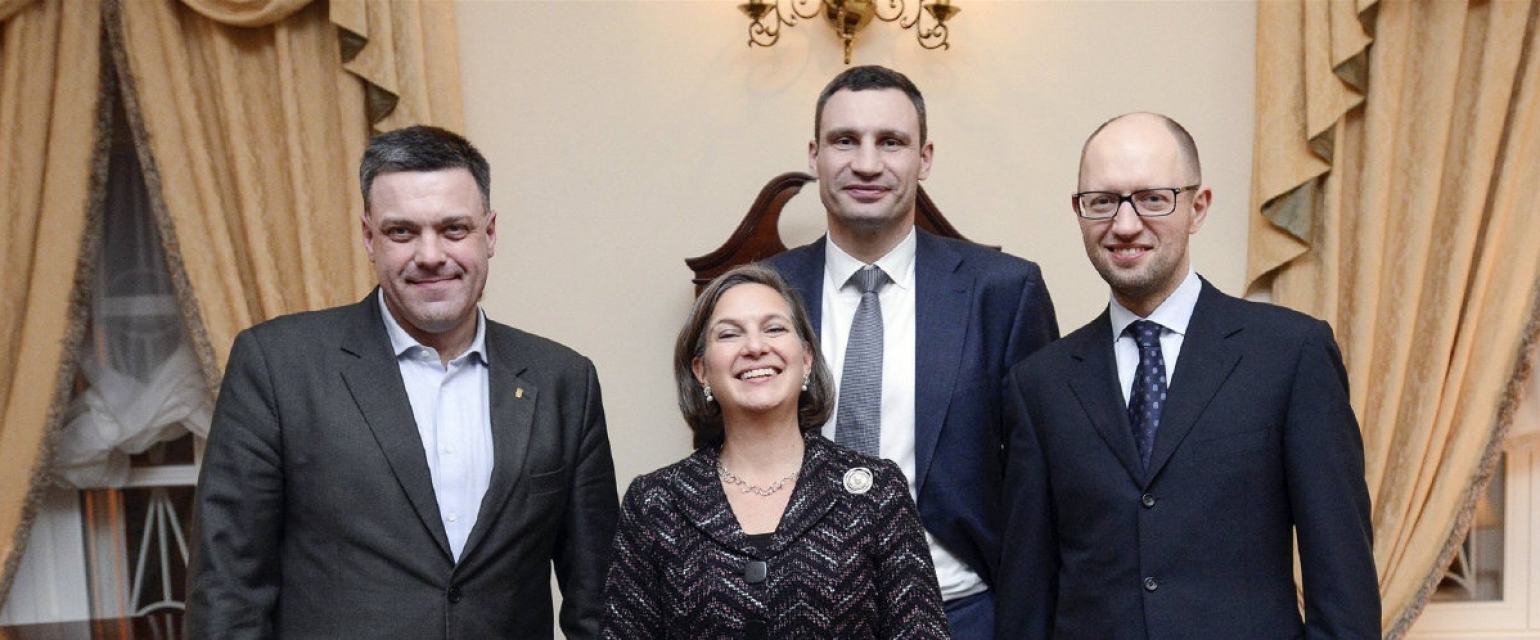
There is no way it may be settled without Russia
The text was originally published in Russian
Last week for the second time in the last six months I went to Washington to meet with American officials and experts on Russia. I was particularly interested in their stance on the Ukrainian crisis and the future of relations with our country. As I was there, it was announced that the Obama Administration is planning to adopt Senate’s bill on Ukraine assistance. According to the document, Kiev is to receive arms and military equipment worth 350 million USD, while Washington imposes sanctions against Russian military and energy companies. The initiative has persuaded Moscow that the US strategy ultimately aims at changing the Russian regime.
My observations in Washington prove that this is not an immediate objective for the US yet. However, it does not mean, that the Americans will refrain from an opportunity to speed up the fall of the Russian regime if the internal problems cause a social upheaval. Having met with the White House, National Security Council and Pentagon officials, as well as experts on Russia in Washington, I may conclude that the US has certain difficulties formulating a single consistent policy towards Moscow and is, therefore, incapable of conspiring against it.
The key dilemma of the US policy in the Ukrainian crisis is to punish Moscow without turning it into a strategic opponent in the next century.
The Americans are far from hiding their gloating over the troubles the Russian economy is struggling through, although there are fears that with Moscow’s desperation they may be seeing the worst of it. For instance, Russia could hack the American financial system, or weaken the dollar as an international currency in cooperation with the BRICS countries.
At the same time, it was emphasized that the US is forced to impose sanctions against Russia purely as a response to the Russian actions in Ukraine. There is a shared belief that Russia is testing NATO in this crisis, and a complaint that quick actions based on incomplete data are required. This implies a high risk of a mistake. Which is why Americans wish not to be dragged down further into the Ukrainian crisis, thus, exacerbating tensions with Russia. At least – not yet.
American experts believe that the US role in toppling Victor Yanukovich is exaggerated in Moscow, and the toppling itself came as a result of internal processes in Ukraine. And having provoked Russia by their altruistic support for Maidan, it was done unintentionally. After all, the US could never resist the temptation to support a young democracy.
Victoria Nuland’s, the Assistant Secretary in the Department of State, episodic participation in Ukrainian politics is seen in Washington as opportunism or improvisation. American experts and officials unanimously claim that the US did not intend to oust Yanukovich, although this exactly was the indirect result of Nuland’s actions in Kiev.
The upshot is that some – but not all – of American observers realize the US was partly responsible for the development of the Ukrainian crisis.
And as it has led to the first head-on collision between Russia and the West since the end of the Cold War, many experts are remembering the glorious 1960s with their Cuban missile crisis and Soviet-American normalization later in 1970s. In general on this stage Washington intends to head for de-escalation in relations with Russia, with the latter remaining among priorities, but not at the top.
In the Ukrainian crisis the Obama Administration aims to impede Russia’s policy in Ukraine, avoiding its direct involvement in the conflict where possible and preserving an opportunity for normalization with Moscow. This stance makes the White House vulnerable to criticism from the part of the Republicans. Which is why the Senate’s resolution is bound to be approved by Barack Obama. This will let him demonstrate his solidarity with the Republicans and evade the necessity to take more drastic measures. The resolution as it is now does not contain any binding provisions and may be applied conditionally and not in full. However, in case it is adopted as a law it will not be abolished until the Ukrainian conflict is settled, including the status of Crimea – which means it is unlikely to happen at all.
The US realizes that Russia will not change its policy under the sanction pressure, and its limited effect is said to do no harm to Europe and Ukraine (with the latter the task is especially difficult). The key condition of sanctions against Russia is believed to be the readiness of the Europeans to implement them. The world oil prices plummeting down badly affects the US itself and it has nothing to do with the process. Experts blame it on the OPEC’s desire to prevent the US plans of unconventional oil and gas from realization as this production becomes unprofitable with low hydrocarbon prices.
Lifting of sanctions is conditioned with implementing Minsk agreements by Moscow, who initiated them in the first place.
It is worth noting that the US links the settlement to the document that they have no direct relation to. This demonstrates that the American interests in Ukraine are limited.
Americans make several significant miscalculations in their analysis of the Ukrainian events. Most experts tend to interpret Russian policies through the prism of the figure of Vladimir Putin, and almost none of them follow the domestic political processes in Ukraine. Thus, they remain oblivious to the fact that 75% of Donbass refugees head to Russia, that the Ukrainian elections were held with the low turnout, and that the South-Eastern towns are witnessing subversive activities of underground armed organizations. There is a tendency to see the radicalism of the current Kiev authorities as pre-election conditions, and to believe that common sense will prevail in the future.
At the same time, the US realizes that their support for Ukraine may lead to further exacerbation of the military conflict in Donbass and do not wish to provoke it. In the lobby talks most experts admit that the Ukrainian economy will never stabilize without Russian participation. Meanwhile, the Kiev government is short of time to change the situation for the best and meet the expectations of the West and Ukrainians themselves – it has no more than 6 months.
Interestingly, with the urgent problems in Donbass and in the Ukrainian economy, the Crimea issue has almost left the agenda. A formula for an internationally acceptable status of the peninsular was repeatedly mentioned. And it may only be realized through an agreement between Moscow and Kiev.
The lack of diplomatic contacts between Russia and the West during and before the crisis was unanimously pointed out to me in my talks in Washington. Americans feel sorry about the EU’s refusal to accept Moscow’s suggestion on consultations about the Association Agreement, as well as the cessation of contacts with Russia in the military sphere, including the framework of the Russia-NATO Council – although it was the US that initiated this cessation. It was admitted, that a diplomatic opportunity to agree on a new multilateral format of interaction with the Kiev government right after the coup was missed in late February.
Most importantly, the American experts for the first time agree that the European security architecture needs extra discussions and guarantees.
For the first time the Russian initiative of a European security treaty is taken seriously.
This leaves space for certain optimism. At this stage it seems that the objectively expected Ukrainian crisis has brought its first positive results, which are a new sober vision and the recognition of the necessity of a dialogue between the West and Russia.
И проблем сегодня гораздо меньше, и они значительно менее опасны, чем те, которые нам приходилось решать в период «холодной войны». Однако неспособность оценить, как закончилась «холодная война», оказала огромное влияние на взгляды России и Запада. И эта неспособность объясняет то, что происходит сейчас.
Новшество международных дискуссий о Карабахе - попытки представить Россию, как страну, эксклюзивно ответственную за дестабилизацию ситуации.
Кремль все более склонен пойти на уступки и готов взаимодействовать с США и ЕС взамен на начало постепенного снятия санкций в финансовом секторе в 2017 году. Но если Москва столкнется – снова – с категорическим отказом, велика вероятность того, что Россия потеряет какую-либо надежду на нормальные отношения с Западом, займет более воинственную позицию и будет более активно развивать свои отношения с Китаем и другими азиатскими странами.
7-8 декабря 2015 года аналитическое агентство "Внешняя политика" провело на площадке Фонда поддержки публичной дипломатии имени А.М. Горчакова двухдневный консультационный семинар по теме "Внешняя политика России: стратегия, риски и принятие решений".

«Внешняя политика» - аналитическое агентство, которое позволяет частным лицам и специалистам государственных и бизнес-структур правильно понимать логику международных процессов и трезво оценивать и прогнозировать политические риски. В отличие от СМИ, материалы "ВП" формируют целостное понимание проблемы и позволяют принимать решения.
(подробнее).

